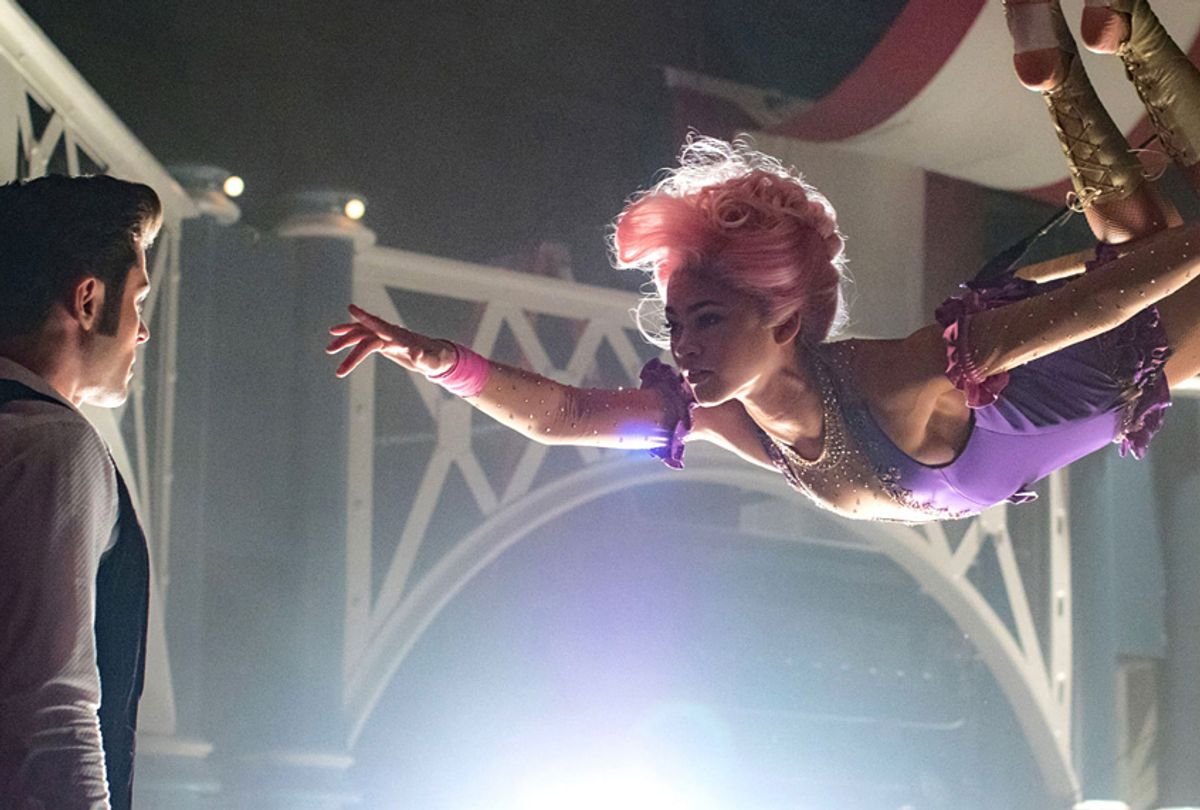Hasn’t our popular culture evolved beyond biopics like “The Greatest Showman”?
The lavish movie-musical about the 19th century showman and circus entrepreneur P. T. Barnum certainly could have told an interesting story. Barnum was a fascinating and complex individual, a man who championed abolitionism and served as a reasonably competent politician in his later years but made his fortune through schemes that mislead paying audiences about what he was displaying and exploited the physical difference of so-called “freaks.” He was a philanthropist who always insisted on making a buck off of his charitable works if possible, a huckster who was beloved by those who knew him well, a charlatan entertainer who tried to debunk spiritualists and others whose deceptions he considered morally worse than his own.
I am not of the school that argues that biopics about historical figures need to vilify them, or even that they need to be terribly accurate. We can have fare like the musical “Hamilton” which, though glossing over Alexander Hamilton’s economic elitism and other unsavory political views, still manages to capture the nuances of his character in an intelligent and convincing way. It doesn’t even bother me that much of “The Greatest Showman” is grossly inaccurate in many ways (for example, Barnum was much older than Hugh Jackman is portrayed when he created the modern circus). These are understandable compromises, necessary for the sake of displaying a work of art — a fact that, appropriately enough, Barnum himself would have understood.
At the same time, there is something disheartening about the way that “The Greatest Showman” insists on transforming a three-dimensional human being into a generic musical protagonist. This isn’t the story of Barnum’s life, but a formulaic rags-to-riches story grafted onto the broad outlines of Barnum’s career as a circus entrepreneur. It’s remarkably unambitious as a result, turning its real-life characters into cardboard cutouts — Barnum is the con man with a heart of gold, his wife Charity is the long-suffering but loyal partner, New York Herald editor James Gordon Bennett is a snooty and joyless art critic, etc. — and ignoring the thorny ethical questions that made Barnum’s story so intriguing.
Take its depiction of the “freaks” such as the morbidly obese man, the bearded lady, General Tom Thumb, the giant, the dog boy and so on. Considering that these marginalized individuals were vital to Barnum’s cultural legacy — without them, he never would have had his legendary circus — it is impossible to honestly tell Barnum’s story without exploring the moral questions at the core of their contribution. On the one hand, Barnum was offering them a much better living than they could have received in any other way during that era and was much less cruel to them than many of their contemporaries. He was also undeniably exploiting their suffering for cash, and what the movie describes as a “celebration of humanity” was to many 19th century consumers an easy way to poke fun at and feel superior to men and women who could be “othered.”
This is perhaps the most interesting story in “The Greatest Showman,” but it’s one that the musical never bothers telling. Aside from a single showstopping number “This Is Me” — and while the song is good, it is a standard empowerment piece that doesn’t address the specifics of its characters’ situation — this theme is almost entirely ignored. The closest it ever comes to having a meaningful confrontation with this issue is when Barnum recruits a reluctant Charles Stratton (later Tom Thumb) by inquiring, if people are going to laugh at you anyway, why not get paid for it? The fact that Barnum both has a valid point and is yet contributing to the way little people are brutally demeaned and dehumanized speaks to the central moral quandary that exists at the film’s soul. While this would merely be a storytelling shortcoming if “The Greatest Showman” was purely fictional, it becomes morally problematic considering that it exists to celebrate Barnum as both a pioneering entertainer and a lovable rogue.
There is also the problematic subtext in the story told through two of the fictional characters in “The Greatest Showman” — Zac Efron’s playwright-turned-business partner Phillip Carlyle and Zendaya’s trapeze artist Anne Wheeler. Again, there is nothing wrong with creating fictional characters in an otherwise real-life story, but the main purpose of the Ephron and Zendaya characters seems to be to offer social commentary on how an interracial couple would have been rejected in 19th century America. Yet because this tale is told in such overwrought and simplistic terms, it feels more self-congratulatory than insightful. For condemnations of racism to be effective, both the heroes and the racists need to be depicted in a realistic way. When the heroes are instead little more than blandly likable and the racists are over-the-top, most mainstream audiences — including many that have racial prejudices of their own — will be able to sit smugly in their seats with the certainty that they would never have embraced such bigoted views.
This isn’t to say that there aren’t things to admire about “The Greatest Showman.” Hugh Jackman is an immensely talented singer and dancer, the music and choreography are incredibly impressive and the lush visuals keep you engrossed even when the plot itself is overly predictable. But in an era when social justice politics have encouraged many artists to become more thoughtful in their depictions of historical figures, “The Greatest Showman” feels like an unnecessary step backward toward a more simplistic type of storytelling.

Shares